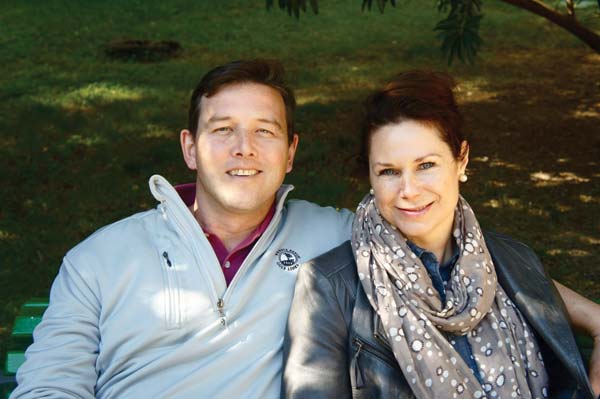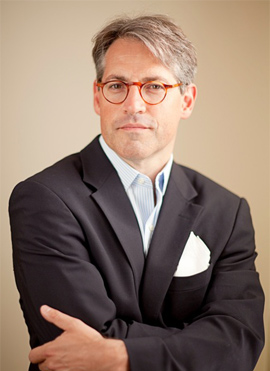All
‘Life in the Spirit and Life of the Mind’
Christian Union: The Magazine recently interviewed Quincy Watkins, pastor of the Neighborhood Church in greater Philadelphia, on the topic of spiritual gifts. Rev. Watkins previously served with Christian Union as a ministry fellow and worked at McKinsey & Company after earning an MBA ('95) in business at The Wharton School.CU: How did you become a Christian and when did you embrace spiritual gifts?
QW: At the age of 15, I became a Christian in a small Pentecostal church. My first experience with spiritual gifts (at the age of 16) was both powerful and overwhelming. After an intense season of fasting and prayer, I experienced many visions and prophetic words about people and their circumstances. Over the years, I've learned how to harness and cultivate my spiritual gifts. I still have so much to learn. I'm humbled that God would use someone like me.
"It is good to give thanks to the LORD to sing praises to your name, O Most High; to declare your steadfast love in the morning, and your faithfulness by night." — Psalm 92:1
God Himself is Our Rest

By Matt Bennett
From ChristianUnion.org
In a hurried world, almost nothing is more precious than genuine rest. We long to have anxieties lifted, comfort provided, peace restored, and joy in abundance. God provides rest for the Christian who...
Read more or watch the video (4:29) here >
Transformation at Harvard
A Video Update (5:21)
From ChristianUnion.org
Harvard's original motto was Veritas Christo et Ecclesiae, or Truth for Christ and the Church.
While Harvard has drifted from her spiritual heritage and become highly secular, God is still at work. He is stirring up the hearts of Harvard students.
Watch this video update (5:21) on what God has been doing in students' lives at Harvard through the ministry of Christian Union.
Harvard Law Students Probe Sociologist's Acclaimed Book
by Catherine Elvy, Staff Writer Christians are called to reflect their faith in all spheres of life.
Christians are called to reflect their faith in all spheres of life.That was one of the themes explored by students involved with Christian Union's ministry at Harvard Law School as they gathered online during the summer to explore and debate sociologist James Davison Hunter's To Change the World: The Irony, Tragedy, & Possibility of Christianity in the Late Modern World.
"We have an opportunity to bring the Church to a place of impact, and we should think long and hard about the ways we can best do that," said Austin Steelman, Harvard Law '16.
Dear Friends,
God is moving in extraordinary ways to develop Christian leaders of wholehearted devotion to Him. Christian Union was founded in 2002 to transform our nation and world by developing and connecting bold Christian leaders. In each issue of Christian Union News, we hope you will find reason to be deeply encouraged as well as reason to seek God and to grow in his grace and love.
"Come, bless the Lord, all you servants of the Lord, who stand by night in the house of the Lord! Lift up your hands to the holy place and bless the Lord!" — Psalm 134
Trickle Down Culture
By Eric Metaxas
Hosted at ChristianUnion.org

Does God want us to change the world? And if so, how? If you're in a hurry, let me cut to the chase: a.) yes — and... b.) by doing what the Clapham Circle did: proving their faith through works, mostly among the poor and powerless, and working among the rich and powerful.
There's a little more to it, but if you must run, there's the nuance-free answer which, like a sack lunch, you may take with you.
If you can stay, I'll begin by telling you about...
Read More >
Religion & Democracy
By Clay Christensen
Professor of Business Administration, Harvard Business School
In this short video, watch as Clay Christenson from the Harvard Business School explains why religion is crucial for a successful democratic form of government. (1:39)
Watch the Video Now >
The Danger of Not Recognizing Campus Religious Groups
By Karen Swallow Prior
TheAtlantic.com
This fall, California State University revoked the official club status of InterVarsity Christian Fellowship groups across its 23 campuses. InterVarsity was founded in 1938 and hosts nearly 1,000 chapters across the country today; it allows any student to be a member, but requires its leaders to affirm its "doctrinal basis," which includes belief in the Bible's "trustworthiness." This statement has led some chapters to...
Read More >
Leading and Learning
By Eileen Scott
Senior Writer, Christian Union: The Magazine

From Africa to Ithaca, Nicole Mensa, Cornell '17, is serving people and sharing the message of God's love and compassion.
A native of Ghana, Nicole came to Cornell for a top-flight education and to experience another culture; because of her participation with Christian Union's leadership development ministry at Cornell, she is also growing in her knowledge of the Bible and...
Read More >
Dear Friends,
God is moving in extraordinary ways to develop Christian leaders of wholehearted devotion to Him. Christian Union was founded in 2002 to transform our nation and world by developing and connecting bold Christian leaders. In this issue, you will find reason to be deeply encouraged as well as reason to seek God and to grow in his grace and love. Welcome to Christian Union's eNewsletter.
"For the earth will be filled with the knowledge of the glory of the Lord as the waters cover the sea." — Habakkuk 2:14
Why Leaders?
By Matt BennettFounder and President, Christian Union
Christian Union's vision for changing culture requires reaching an especially influential segment of the US population with the Gospel. The need is profound; the worldview of this unreached people group affects us personally, shaping our economy, government, media, and education. Read more >
A Fresh Take on Culture Change
By Sarah CampMarketing and Communications Director, Christian Union
Within every society there are those positioned by gifting, calling, and circumstance with disproportionate influence over those around them.
Christian Leaders Have Always Shared Four Traits Throughout History

As a pastor and author, Dr. Crawford Loritts has witnessed first-hand the widespread disregard for the talents and abilities God bestows on individuals. Why? Because more often than not, lining up God-given gifts with our own desires takes precedence, rather than working to understand His heart, mind, and will. Loritts explains in Four Traits of a Leader:
Cornell Alumni Passionate about Christian Leadership Development
 For Cornellians Erik and Trasey Codrington, extending the love of Jesus Christ to students in the Ivy League reflects the grace they have received from God themselves. Erik and Trasey met as undergraduates at Cornell in the 1980s, when the university was what they would describe as a "spiritual desert."
For Cornellians Erik and Trasey Codrington, extending the love of Jesus Christ to students in the Ivy League reflects the grace they have received from God themselves. Erik and Trasey met as undergraduates at Cornell in the 1980s, when the university was what they would describe as a "spiritual desert."
Cornell Alumni Passionate about Christian Leadership Development
 For Cornellians Erik and Trasey Codrington, extending the love of Jesus Christ to students in the Ivy League reflects the grace they have received from God themselves. Erik and Trasey met as undergraduates at Cornell in the 1980s, when the university was what they would describe as a "spiritual desert."
For Cornellians Erik and Trasey Codrington, extending the love of Jesus Christ to students in the Ivy League reflects the grace they have received from God themselves. Erik and Trasey met as undergraduates at Cornell in the 1980s, when the university was what they would describe as a "spiritual desert."
by Eric Metaxas
Does God want us to change the world? And if so, how? If you're in a hurry, let me cut to the chase: a.) yes – and...b) by doing what the Clapham Circle did: proving their faith through works, mostly among the poor and powerless, and working among the rich and powerful.There's a little more to it, but if you must run, there's the nuance-free answer which, like a sack lunch, you may take with you.
If you can stay, I'll begin by telling you about the night talkshow host Dick Cavett and I went to see Mickey Rooney perform. This is not a joke.







